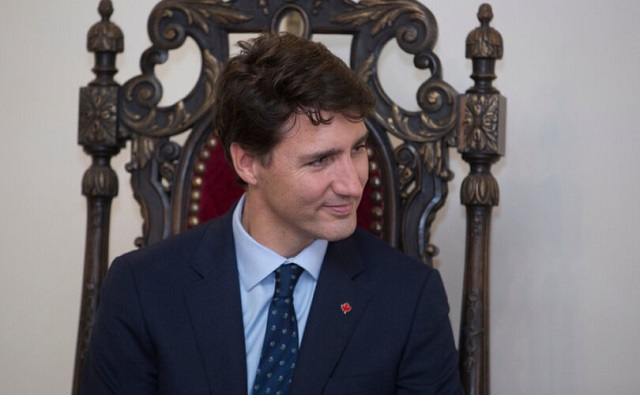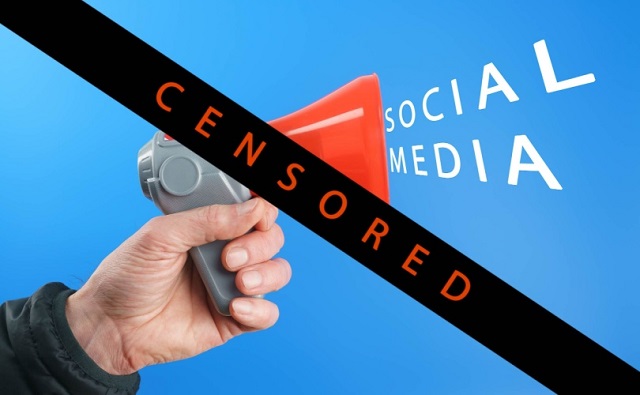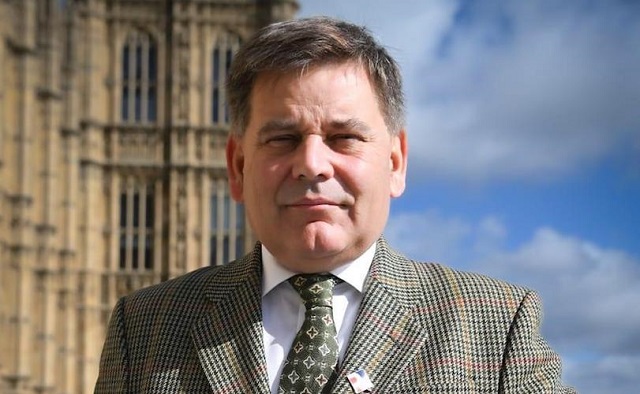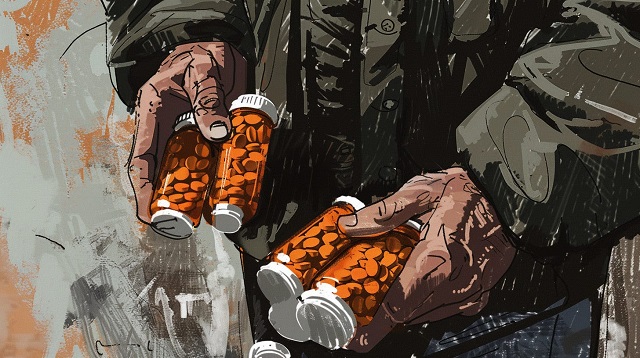Censorship Industrial Complex
Here’s what Canadians need to know about Trudeau’s proposed Online Harms Act

From LifeSiteNews
On this week’s episode of The Van Maren Show, Jonathon speaks with Andrew Lawton about Canada’s proposed Online Harms Act, why Christians and conservatives would be the primary targets, whether or not it can be defeated, and more.
Andrew Lawton joins Jonathon on this week’s episode of The Van Maren Show to discuss the Online Harms Act, Canada’s proposed internet “hate speech” law.
Lawton begins the show addressing the confusion surrounding Bill C-63, pointing out that it does contain things “sensible” people would support, such as provisions concerning child sexual exploitation and terrorist content. However, the bill treats “online hate” in the same way as child exploitation and terror, Lawton observes.
He states that the “hate” portion of the legislation is a reintroduction of section 13 of the Canadian Human Rights Act – something the previous Conservative government of Canada managed to get rid of in 2013. The reintroduced section, however, “supercharges” the original proposal’s language, giving the Human Rights Tribunal the ability to prosecute people for “hate speech” online and forcing social media companies to take down offending content.
“As anyone who’s paid any attention to these sorts of issues can tell you, this is just a recipe for disaster when you give government that authority to define and then to execute,” says Lawton.
He also addresses the “Orwellian” aspect of the bill, observing that it allows people to be prosecuted while they have yet to commit an offense. In other words, if someone suspects someone else of future “hate propaganda” or a future “hate crime,” then any Canadian, whether it be an average Canadian or the attorney general, can appear before a judge and argue that a would-be perpetrator be arrested.
Lawton also notes that sentencing for “hate motivated offenses” – any crime such as vandalism or murder that is motivated by “hate” – can carry a lifetime prison sentence rather than the normal criminal sentence. While people have responded to this worry by saying that judges won’t use that power, Lawton says he doesn’t “like legislation where the only guardrail against abuse is just, ‘Trust us.’”
The language used by the bill itself is broad, Lawton says, maintaining that its drafters have no concern for free speech issues. “Justice Minister [Arif Virani] … was asked about this, and his only justification for how is this going to protect free speech was, ‘Oh well, the law requires that we respect the Charter,’” Lawton notes. “Well, yeah, but that doesn’t mean you’re going to do it. It just means you’re supposed to do it.”
Lawton further addresses an apparent enforcement problem, saying he does not expect the law to be enforced the same way for someone who commits arson against a synagogue or mosque as for someone who commits the same crime targeting a church. Lawton observes that the “political class” treats these offenses differently, and he suspects that since the “judicial class” is appointed by the “political class,” then it will follow the former.
“Already there is a sense that this is not going to be protecting all groups equally,” Lawton opines.
“When you bring that into the speech realm … I don’t think that you’re right to make gender critical comments as a feminist, say, is going to be upheld as much as your right to make trans-friendly comments if you’re a trans activist. And I think right here we have the case of these administrative bodies, these tribunals that have to pick and choose the winners of whose free speech matters more than the other.”
When Jonathon asks Lawton if he suspects Prime Minister Justin Trudeau is pushing the legislation because of a potential Liberal defeat in the next election, Lawton responds by noting that Trudeau first tabled the legislation in 2021 the day before he dissolved Parliament and called for an election, suggesting that Trudeau believes in the legislation. He also believes that Trudeau sees it as a “political win.” He admits that this prospect unsettles him, observing that most are no longer likely to defend freedom of speech as they once did. Later in the episode, he also opines that criticism of the legislation will not stop Trudeau from pushing it.
Lawton further notes that “a lot of” Canadians have not given critical thought to the “edge cases of things that they care about,” observing that if one were to ask Canadians if they support free speech, most would answer positively, and that people would “generally agree” if they were asked if the government should regulate “hate speech.” The problem, he notes, is how to define “hate speech” and what it actually entails.
Lawton, looking at how the issue will pan out, believes that the bill will indeed pass one day, but he makes note of two issues. First, he says there is a question of what happens in parliamentary committee, stating that committees have a “significant role,” especially in minority governments. He says this has been made clear by parliamentary discussion on Medical Assistance in Dying (MAiD). What he would like to see happen is that the parties agree to split the bill in committee, one bill dealing with child sexual exploitation and the other dealing with “hate,” but suspects that there will not be opposition to it either way.
“The best that the Conservatives could hope for is some level of dilution in the committee stage, but it won’t be what it needs to be, which is just killing the bill outright,” Lawton suspects.
Should the bill pass, however, Lawton observes that regulations surrounding the legislation would still need to be written by the Canadian Human Rights Commission (CHRC), and that social media companies would have to respond to it. It would be in the Conservatives’ interest, he asserts, that it would not be fully implemented by the time of the next election, since it would be easier to undo it.
Further, Lawton says it would send a “chill” and that people will become “leery” of what they say, while others like himself will look at the CHRC and say “come at me,” and still others will not wish to deal with it. He once again points to the reaction of social media companies, however, and says that their response will be “fascinating,” given how Facebook blocked news in Canada rather than abide by government regulations.
Lawton closes the interview observing that the legislation targets speech that is “likely to foment detestation or vilification” of people based on a “prohibited ground of discrimination,” while offensive, disdaining, humiliating, hurtful, or speech expressing dislike, is allowed.
“What I would tell Canadians is that if you think that your speech at some point will not be targeted by this, you listen to that definition and tell me where the line is between disdain and detestation, or the line between dislike or vilification, and ask whether you trust the government to draw that line fairly,” he says.
Lawton adds that the fight against the bill is “winnable” and notes there is more discussion on the issue now than there was when it was last introduced, given events in Great Britain and Ireland over “hate speech” policy, and hopes that people in Canada don’t have to experience prosecution in order to know why the bill was a bad idea.
The Van Maren Show is hosted on numerous platforms, including Spotify, SoundCloud, YouTube, iTunes, and Google Play.
Censorship Industrial Complex
Elon Musk skewers Trudeau gov’t Online Harms bill as ‘insane’ for targeting speech retroactively

From LifeSiteNews
It literally spits in the face of all Western legal traditions, especially the one about only being punished if you infringed on a law that was valid at the time of committing a crime
Billionaire tech mogul Elon Musk remarked that it is “insane” that the Trudeau government’s proposed “Online Harms” bill would target internet speech retroactively if it becomes law.
“This sounds insane if accurate!” wrote Musk on Tuesday, in reply to an X (formerly Twitter) user named Camus who detailed that Prime Minister Justin Trudeau’s government’s Bill C-63, the Online Harms Act, could see Canadians fined or even jailed for things posted on the internet prior to the bill becoming law.
Camus noted how Bill C-63 could give police “the power to retroactively search the Internet for ‘hate speech’ violations and arrest offenders, even if the offence occurred before the law existed.”
A brief time later, X’s “CommunityNotes” program – a system in which users collectively “fact-check” information shared on the site –confirmed what Camus had written was accurate, quoting a section of the bill’s text.
“Part 3 of Bill C-63, which is still at first reading stage and is not yet law, adds to the Canadian Human Rights Act: ‘a person communicates or causes to be communicated hate speech so long as the hate speech remains public and the person can remove or block access to it,’” CommunityNotes wrote.
Camus observed about Bill C-63 that the “Trudeau regime has introduced an Orwellian new law.”
“This new bill is aimed at safeguarding the masses from so-called ‘hate speech,’” he wrote. “The real shocker in this bill is the alarming retroactive aspect. Essentially, whatever you’ve said in the past can now be weaponized against you by today’s draconian standards.”
Camus observed how historian Dr. Muriel Blaive has weighed in on “this draconian law,” labeling it outright “mad.”
“She points out how it literally spits in the face of all Western legal traditions, especially the one about only being punished if you infringed on a law that was valid at the time of committing a crime,” wrote Camus.
Bill C-63 was introduced by Liberal Minster Attorney General Arif Virani on February 26 and was immediately blasted by constitutional experts as troublesome.
The bill, if passed, will modify existing laws, amend the Criminal Code as well as the Canadian Human Rights Act, in what the Liberals claim will target certain cases of internet content removal, notably those involving child sexual abuse and pornography.
However, the bill also seeks to police “hate” speech online with broad definitions, severe penalties, and dubious tactics.
Trudeau’s new bill a ‘terrible attack’ on speech, Musk warns
On Tuesday, well-known Canadian psychologist Jordan Peterson replied to Musk by saying about Bill C-63, “It’s much much worse than you have been informed: plans to shackle Canadians electronically if accusers fear a ‘hate crime’ might (might) be committed.”
“It’s the most Orwellian piece of legislation ever promoted in the West.”
Musk replied to Peterson by saying Bill C-63 is “[a] terrible attack on the rights of Canadians to speak freely!”
Other notable X users, such as Canadian lawyer David Freiheit, who is known online as Viva Frei, confirmed Musk’s concern that Bill C-63 could go after X users from posts/tweets made long ago.
“It’s pretty close to accurate, Elon. If someone has the ability to delete a ‘hate speech’ tweet / post and does not, and someone else retweets that tweet, it would qualify as ‘publication’ under the law and be sanctionable,” he wrote.
Details of the new legislation to regulate the internet show the bill could lead to more people jailed for life for “hate crimes” or fined $50,000 and jailed for posts that the government defines as “hate speech” based on gender, race, or other categories.
The bill also calls for the creation of a digital safety commission, a digital safety ombudsperson, and a digital safety office.
The Justice Centre for Constitutional Freedoms (JCCF) has said Bill C-63 is “the most serious threat to free expression in Canada in generations. This terrible federal legislation, Bill C -63, would empower the Canadian Human Rights Commission to prosecute Canadians over non-criminal hate speech.”
In a recent podcast, Peterson and Queen’s University law professor Bruce Pardy warned of the “totalitarian” impact Trudeau’s new Online Harms bill will have on Canada.
Peterson observed that the Trudeau government is effectively “establishing an entirely new bureaucracy” with an “unspecified range of power with non-specific purview that purports to protect children from online exploitation” but has the possibility of turning itself into an internet “policing state.”
Censorship Industrial Complex
Internet censorship laws lead a majority of Canadians to believe free speech is threatened: poll

From LifeSiteNews
In light of the barrage of new internet censorship laws being passed or brought forth by the federal government of Prime Minister Justin Trudeau, a new survey revealed that the majority of Canadians feel their freedom of speech is under attack.
According to results from a Leger survey conducted April 26-28 that sampled responses from 1,610 Canadians, 57 percent think their freedom of speech is being threatened, with 36 percent not believing this to be true.
Not surprisingly, those with conservative voting intentions, about 76 percent, were the most likely to feel that their free speech is under attack, with 70 percent of the same group as well as those over 55, feeling that Canada is not as free as before.
The survey results also show that 62 percent of Canadians think it is “tougher to voice their opinion in their country, while 27% think it is easier.”
“Conservative voters (70%) and Canadians aged 55 or older (70%) are more likely to think that it is tougher now to express their opinion,” Leger noted in its survey.
Not surprisingly, Liberal voters were the most supportive of placing limits on free speech, with 64 percent agreeing with the following: “There should be limits on freedom of speech to ensure that things such as hate speech, speeches preaching a form of intolerance, or speeches against democracy be prevented from reaching the public.”
The survey also revealed that about one of four conservative voters believe that their views are not socially acceptable.
Sixty percent of conservative voters said that free speech should never be limited in any manner and that one should be able to express their opinions publicly without issue.
Regarding their reasons for free speech being under attack, 11 percent blamed politicians causing more hate, with eight percent saying “right-wing” extremists were to blame, with seven percent blaming woke-minded thinking as the issue. Twenty-nine percent of Canadians felt that a growing lack of respect is to blame, and 13 percent thought it is due to “a degradation of the moral fibre in the country.”
A bit concerningly, only six of 10 Canadians have confidence that the next federal election, scheduled for 2025, will be “free and fair,” with 29 percent saying outright they are “not confident.”
When it comes to internet censorship laws, the most recent one introduced in the House of Commons is a federal government bill that could lead to large fines or jail time for vaguely defined online “hate speech” infractions under Liberal Minster Attorney General Arif Virani’s Bill C-63, or Online Harms Act.
LifeSiteNews recently reported how well-known Canadian psychologist Jordan Peterson and Queen’s University law professor Bruce Pardy blasted Trudeau and his government over Bill C-63.
Peterson noted that in his view, Bill C-63 is “designed … to produce a more general regime for online policing.”
“To me, that’s what it looks like,” he said.
Two other Trudeau bills dealing with freedom on the internet have become law, the first being Bill C-11 or the Online Streaming Act that mandates Canada’s broadcast regulator, the Canadian Radio-television and Telecommunications Commission (CRTC), oversee regulating online content on platforms such as YouTube and Netflix to ensure that such platforms are promoting content in accordance with a variety of its guidelines.
Trudeau’s other internet censorship law, the Online News Act, was passed by the Senate in June 2023.
The law mandates that Big Tech companies pay to publish Canadian content on their platforms. As a result, Meta, the parent company of Facebook and Instagram, blocked all access to news content in Canada. Google has promised to do the same rather than pay the fees laid out in the new legislation.
Critics of recent laws such as tech mogul Elon Musk have said it shows “Trudeau is trying to crush free speech in Canada.”
-

 COVID-191 day ago
COVID-191 day agoAstraZeneca withdraws COVID vaccines worldwide amid lawsuits alleging severe harm
-

 National2 days ago
National2 days agoTaxpayers Federation presents Teddy Waste Awards for worst government waste
-

 Censorship Industrial Complex1 day ago
Censorship Industrial Complex1 day agoInternet censorship laws lead a majority of Canadians to believe free speech is threatened: poll
-

 Automotive2 days ago
Automotive2 days agoNew Analysis Shows Just How Bad Electric Trucks Are For Business
-

 COVID-1920 hours ago
COVID-1920 hours agoBritish MP Andrew Bridgen gives powerful speech on ‘scandal’ of excess deaths after COVID jab rollout
-

 COVID-192 days ago
COVID-192 days agoElon Musk’s X will help fund COVID shot critic’s ongoing legal battle against Canadian university
-

 MAiD14 hours ago
MAiD14 hours agoEven Canadian leftists are starting to recognize the ‘dystopian’ nature of MAiD
-

 Censorship Industrial Complex14 hours ago
Censorship Industrial Complex14 hours agoElon Musk skewers Trudeau gov’t Online Harms bill as ‘insane’ for targeting speech retroactively








